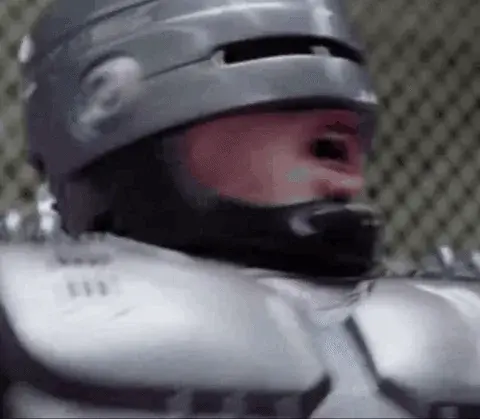But this sounds exactly the sort of thing that machines are better at that people, so it just feels completely unsurprising that it was good at the task.
Turning multiple dials to manage speed and direction is not normally how humans interact with the world, so we can we pretty shit at it.
A basic motor is completely designed to turn like this.
This feels no different to the machine learning tools used to train on Mario a decade ago.
Right. Computers doing the shit that we don’t want to do for a living while giving us time to do things like paint cows that don’t have two heads.
I’m not really surprised, the main challenge of that game is motor control, something any machine can do with more precision than a human
I agree but also disagree. It’s true that machines are capable of fine motor control much more quickly and accurately than humans. But this by itself is often not enough.
This achievement should be somewhat surprising because of Moravec’s paradox: the observation that, opposite to what early AI researchers expected, intelligence and reasoning skills are comparatively easy for a computer to simulate, while sensorimotor skills are in fact incredibly hard. Notice how, for example, chess engines started beating human players in the 90s or so, but we still don’t have a robot that can do something as simple as pick raspberries (because surprise, for a machine picking a raspberry is actually hard as shit).
My eyes bursted out of my sockets when an AI was able to multiply 8 prime numbers faster than a human.
They’re calling everything “AI” nowadays… this sort of learning algorithm is old as fuck, here’s a 8yo example. The main differences between both situations is 1) some sensor(s) being used to “tell” the algorithm about the board state, and 2) the barebones robotic arms messing with the board.
I don’t get what the issue is calling it AI?
Even if skipping completely the discussion about what is “intelligence”, the expression “artificial intelligence” has been used as a label for so many different technologies that it has become practically useless. It includes things like decision trees in games (even if a lot of them boil down to simple if/then statements), generative models, even theoretical systems that would reason in a human-like way. And evolutionary models like the one in the OP and the one in my link.
So it’s basically the 20s version of what “smart” was in the 90s/00s. Like this:

OK, I’m being cheeky and exaggerating it in the image macro, but it should give you an idea.AI has been a field within computer science since at least the 1950s. It encompasses algorithms for making decisions, which is why so many technologies are labeled this way. “Intelligence” may seem like an odd choice of terminology (some people conflate it with sentience or similar), but general machine intelligence is one goal of this study, and the applications of AI are putative steps to that end.
Back when those guys started talking about what methods could get us there, things like decision trees, symbolic manipulation, neural nets, were all potential pathways that were on the table. So these get included in the field because that’s where and to what end they were produced.
Another thing is that intelligence can be narrow in its domain. A character in a video game that needs to move from point A to point B can do so following something like the A* pathfinding algorithm. In the domain of graph traversal/pathfinding, it’s hard to imagine something much more intelligent (or fit to solve the problem) than A* despite being a simple algorithm.
But yeah, as a marketing term it is kind of silly since most people don’t know what it means. It remains a useful categorization for a broad field of study/research in CS though.
I’m fine with the usage of the acronym and expression in CS; specially because scientists are damn stubborn when it comes to “This is not [word1]! This is [word2]! Don’t screw with the terminology, you muppet!”. (As they should.)
So the bone that I have to pick against it is mostly against its marketing usage. Specially when it masks the underlying tech, just to make it look fancier. (Like here.)
It may be over-used but in my mind it’s still the correct term. AI is quite a broad category so you can fit many kinds of software algorithms under it. Perhaps it’s misleading as many people probably imagine AI to imply AGI when it could just be narrow AI aswell which even though not generally intelligent may still be superhuman at this one specific task like in this example playing the labyrith.
AI implies intelligence. This is just a simple algorithm
Not really. Can you write this specific simpele algorithm out in a few lines? Its Computer Vision (which I admit uses probably quite a simple algorithm to find the ball) and a reinforcement learning algorithm with one goal; get the ball from start to finish, these are your only 2 inputs. They didn’t write the algorithm. Time and the neural network did the rest on its own. That’s were the artificial ‘intelligence’ is referring to, humans didn’t put any algorithm there.
Exactly. Not to mention, why the fuck is it a surprise that a computer twisting the knobs “at superhuman speed” would be better at this game than humans. Like, no shit. We can’t compute how the degrees at which we’re turning the knobs affects the speed of the ball, can’t store that information for next time, and find the best way not making the same mistakes twice. Because…we’re human. We don’t have that finely tuned ability…because we’re not machines.
So…this isn’t “AI” despite the robot hands they put in the thumbnail and no shit a dedicated computer could master this game. I’m surprised it took six hours.
Additionally, this shit is really easy to compute. It’s all Newtonian physics, and there are only two relevant equations here, both simple: d = at²/2 + vt and a = g*sin(θ). It’s really easy for a computer to reach those formulas, cancelling the advantage that humans would have (insight and actual knowledge of the system).
You don’t need AI to do that, seriously, such a buzzword where a relatively simple algorithm would suffice, don’t tell me it’s harder than double pendulums or those ball bouncing contraptions tech students make since a decade or more
Not needing AI isn’t the point. The point is that AI can do it, and AI doesn’t require a programmer to design and debug a bespoke algorithm to accomplish a task. It would take a human a lot longer than 6 hours to perfect an algorithm to do this.
Yeah, you have a point here
deleted by creator
I hope their jaw is alright
I cringed at the headline but just posted it as is and thought the article was kinda interesting.
It sure won’t after he’s gonna discover that his wife has chosen to leave him for her new AI driven dildo.
It is just a matter of time
Here, the video the article is talking about. Save you from reading the author’s life story.
While the link is useful, the smug takedown is uncalled for. Humans relate way more through personal stories like this. Without the story, the video is not impressive at all, as most will have now idea how difficult this achievement is. There is also something to be said about adding some flourish and passion in the story, instead of coldly presenting facts.
It’s just like those shitty recipe sites that tell you their grandma’s life story for hours before giving the recipe. Get to the point, who cares about the anecdotes of some writer?
I don’t want to connect with everyone always everywhere. It’s just like small talk, which may be acceptable or even essential in some cultures, while considering rude and wasteful where I’m from.
This is because Recipes aren’t copyrightable (they can be patented hypothetically but no one is going to do that outside of a major brand), but the story blurb they write can be. Makes it much harder for some bot to pull out all of the recipes from a site and relist them.
Not everything is the same. It’s not at all like those recipe sites. This is clearly adding necessary context to this achievement.
I get that, some people prefer to have some personal story mixed in the article, but personally i’d like to have my time respected, more than 2 paragraphs of that and i’m out. With that bloated life story and a baitest of the clickbait headline, it deserved to be call out.
I didn’t find the story bloated. I found the whole article quite insightful. Not everyone is processing things the same way.
Exactly. Personally i find it bloated.
I’m ASD and I’m also human, gimme the cold hard facts so I can absorb them like I do everything else without having to strip the clutter. Everything else is useless to me.
I’m ASD as well and I always tell others that they need to realize most humans cannot live on ASD expectations. So there’s no point in bellyaching about it.
The point of journalism is to get the facts across and inform viewers. I don’t care about the journalist other than them being impartial and reporting on the facts.
Man, you sound like those gamers who complain that game journalisst should only report on the technical specifications of the game.
That’s different. Video game journalism isn’t factual news, it is reviews, which are inherently opinion pieces. I expect to get personal elements there. Not to mention the unique role of games putting the players in the seat of telling the story.
To paraphrase Sir Patrick Stewart:
Video games are a unique entertainment medium because the person playing them creates the story.
In a book, the author writes the story and it comes to life in your head.
In a movie or show, ultimately it’s the director and editor who get to tell the story, the actors doing what they’re told.
In a play or music, the actors/musicians on stage tell the story.
In a video game, the player creates the story.He was only talking about video games, but the same applies to the modern ttrpgs and more complex board games like “the captain is dead” or “tokaido”
There’s no such thing as “factual news”
Yeah there is.
Fox news isn’t it.Also I didn’t ever say “factual news”
Oh yeah? Can it tilt the board all the way to one corner, then pop the other corner and send the ball flying right to the end?
No, it’s amateur at best.
That’s addressed in the article actually. They had to program it so as not to cheat when they found it actually trying to cheat.
The true ability of AI/machine learning is to find and abuse all the loopholes and errors that exist in the training set.
“The only winning move is not to play” was simply WORP maximising its reward function.
This is pretty much what I’d expect AI to be best at.
It’s cool but my question is (I did not see this addressed in the article nor video but might have missed it) did it learn to win the game in general terms or only this one example? I mean, if the layout of the board was changed, would it still solve it?
They don’t discuss it here, but it’s most likely a reinforcement model that operates different generations of learned behavior to decide if it’s improving or not.
It would know that the ball going in the hole is “bad”, and then try to avoid that happening. Each move that is "good’ is then kept in a list of moves it should perform in the next generation of its plan to avoid the “bad” things. Loop -> fail -> logic build -> retry. After 6 hours, it has mapped a complete list of “good” moves to affect it’s final outcome.
The answer your question: no, it would not be able to use what it learned here on a different map of the board. It’s building reactions to events based on this one board, and bound by rules. You could use the ruleset with another board, but it would need to learn it all again just as a human would.
The thing about these models is less that they will work (it is assumed they eventually will through trial and error), but how efficiently they will work. The number of generational cycles and retries is usually the benchmark when dealing with reinforcement, but they don’t discuss that data here either.
Yes, but that’s kind of my point
We see it learn something with insane precision but most often it is almost an effect of over-training. It probably would require less time to learn another layout but it’s not learning the general rules (can’t go through walls, holes are bad, we want to get to X), it learns the specific layout. Each time a layout changes, it would have to re-learn it
It is impressive and enables automation in a lot of areas, but in the end it is still only machine learning, adapting weights to specific scenario
It did learn to use shortcuts to skip parts of the maze, and had to be told not to. Super interesting!
Yes, but that’s only because a generation found some random, specific motion that scored better. Not because it analyzed that doing a skip should be possible
When the AI can solve one of these I’ll be impressed:
Hey, I also had a toy like that! Cool!
Not sure if it’s more interesting that an AI taught itself the PID instructions in order to deftly move the ball around, or if it’s more interesting if a human programs the PID instructions to move the ball around. Sounds like a lot of electricity was used doing it the first way.
















